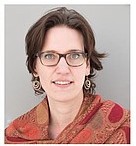01. Jun 2020 - Joachim von Puttkamer and Eva-Clarita Pettai
“The coronavirus is Germany’s greatest challenge since World War II”, said Angela Merkel in one of her rare TV-addresses in mid-March. She obviously wanted to underline the scale of the pandemic as being ‘unprecedented’ in our time, while simultaneously keeping the balance between her renowned factual, objective style and the need to alert the public to a truly dramatic situation. Her reference to the Second World War was intended to emphasize that this is bigger than the events of 1989/90. Covid-19 will claim many lives and has already done so. At the same time, she wanted to distance herself from the martial rhetoric of French president Emmanuel Macron.
The Covid-19 pandemic is unprecedented in several ways. While one can easily think of events that were more threatening and cost many more lives, it is difficult to come up with an event that streamlined global politics within such a short period of time and interfered so deeply with everyday lives across the planet. Claiming it as unprecedented in living memory leaves room for the possibility that there might have been earlier events of similar scope. Many such historical references have been evoked: namely, the Spanish flu, which ravaged Europe at the end of the First World War, the bubonic plague of the fourteens century and the epidemics that ravaged the Americas after the arrival of the first European explorers. These references remind us that pandemics have been a recurrent phenomenon throughout history, that they have claimed millions of victims, and that social distancing and strict isolation of the infected – if not cruel – has always been an obvious societal reaction. Frequent mention of the SARS pandemic of 2002 or the swine flu pandemic of 2009 remind us of the writing on the wall: we could have been prepared and could have braced ourselves for the inevitable – for the pandemic which we are now experiencing.
Beyond the sphere of direct political arguments, historical references are being used to explain why healthcare institutions are particularly overburdened in some countries, and why some societies are more accepting of severe social restrictions than others. A German journalist recently argued that for Italian prime minister Paolo Conte, the European financial architecture must seem as if it is from a bygone era. Italy has seen eighteen governments since the Maastricht treaty of 1992, whereas, in the same amount of time, Merkel is only the second successor in the German chancellor’s office. Historical time can flow at various speeds, and this makes a difference if one wants to assess immediate challenges and develop novel responses to them.
Other interpretations see an acceleration of long-term historical processes. Some analysts evoke the rise of China, others, America’s retreat from global leadership. The impetus which Covid-19 gives to digitalization is obvious. Picking up on Norbert Elias’s theory, sociologist Reinhard Blomert recognizes social distancing as but another step in the process of civilization: of first enforced and then later internalized hygiene standards, followed by alienation from our own human bodily natures.
In the current situation, historical references thus seem to serve various purposes. In preparing the population for unprecedented restrictions and in justifying state expenditure of hitherto unknown dimensions, they underpin the nation state as the presumably natural option, as the institution strong enough to answer the challenge. At the same time, they paradoxically highlight the global dimension of the pandemic. Last but not least, they make us believe that we stand on the threshold of a new epoch: the 21st century is beginning to take shape.
Are such references to history, or more precisely, to a specific lack of historical experience, helpful in interpreting the current situation? How do they link up to national narratives and trajectories? The Central and Eastern European experience might be particularly telling in this respect.
Indeed, with perhaps the exception of Russia and Belarus, Central and Eastern European governments reacted for the most part quickly and decisively. While infection numbers were still rather low, governments already issued travel restrictions, shut down flights and borders and ordered their populations to stay at home. Some of these measures were so quickly and draconically implemented that citizens had difficulties returning home; citizens of neighbouring countries got stranded due to closed borders and what felt like hostile controls. Thanks to these early restrictions, many now argue, the overall death toll of this pandemic has been notably lower in Central Europe than in most Western European countries. Less exposure to international business and tourism might have also contributed to lower infection numbers and slower growth rates, which gave governments more time to react reasonably. Yet, some governments of the region seemed utterly incapable of finding a balance between epidemiologically reasonable measures to maintain control of infection paths and health care systems, and no longer acceptable infringements on civil rights and democratic procedures. The Hungarian government seems to welcome the current health crisis as an opportunity to speed up plans for dismantling the institutions of liberal democracy and the rule of law. In some cases, the Covid-19 crisis has further exposed social and political weaknesses that existed already long before the outbreak of the pandemic. In most cases, the crisis has produced new social divisions and power relations that will most likely change the course of national politics over the coming months and years.
All of this may also be true in other European, and more broadly ‘Western’, countries going through this crisis. However, the specific historical constellations that each society emerged from when the crisis hit, still differ remarkably in Europe. In Central and Eastern Europe, the late socialist period, with its economic shortages and restricted individual freedoms (including travel restrictions, state misinformation/propaganda and interference in private lives) is still present in living memory; so are the chaotic years of the immediate transition period when life paths were marked by rapture and uncertainty, but the collective mood was often euphoric and full of national romanticism. Some may be reminded of the more recent economic and financial crisis of 2008/09, which hit some of these societies particularly hard, and required enormous strength and resilience from many fellow citizen. Yet others may be tempted to frame the current crisis in terms of more distant historical times when society was faced with extraordinary hardship.
The aim of this blog is to reflect on the current crisis and the local responses to it (both on the societal and political levels) against these specific historical trajectories and national historical discourses. As Europe seems to be slowly coming out of the worst moments of the pandemic, questions about the long-term effects of the past months, not just on the economies, but on societies and political cultures as well, will be asked. We hope to add to this political and intellectual debate by providing insights into the complex historical and mnemonic dimensions that are involved and may inform future developments.

Joachim von Puttkamer is Professor of East European History and Director of the Imre Kertész Kolleg at the University of Jena.

Eva-Clarita Pettai is research associate at the Imre Kertész Kolleg, University of Jena
Joanna Wawrzyniak · 11.10.2020
Memory and the Covid-19 Pandemic: The View from Poland
Read more
Raul Cârstocea · 24.08.2020
Othering the Pandemic: Scales of Exclusion and Solidarity
Read more
Daniela Koleva · 13.08.2020
Bulgaria’s Corona-Drama in Three Acts
Read more
Gábor Egry · 06.08.2020
The Untergang des Abendlandes and the Rise of Mitteleuropa? The Covid-19 Pandemic and the Reposition...
Read more
Aleksandra Salamurović · 29.07.2020
Metaphorical and Literal Wars in Serbia
Read more